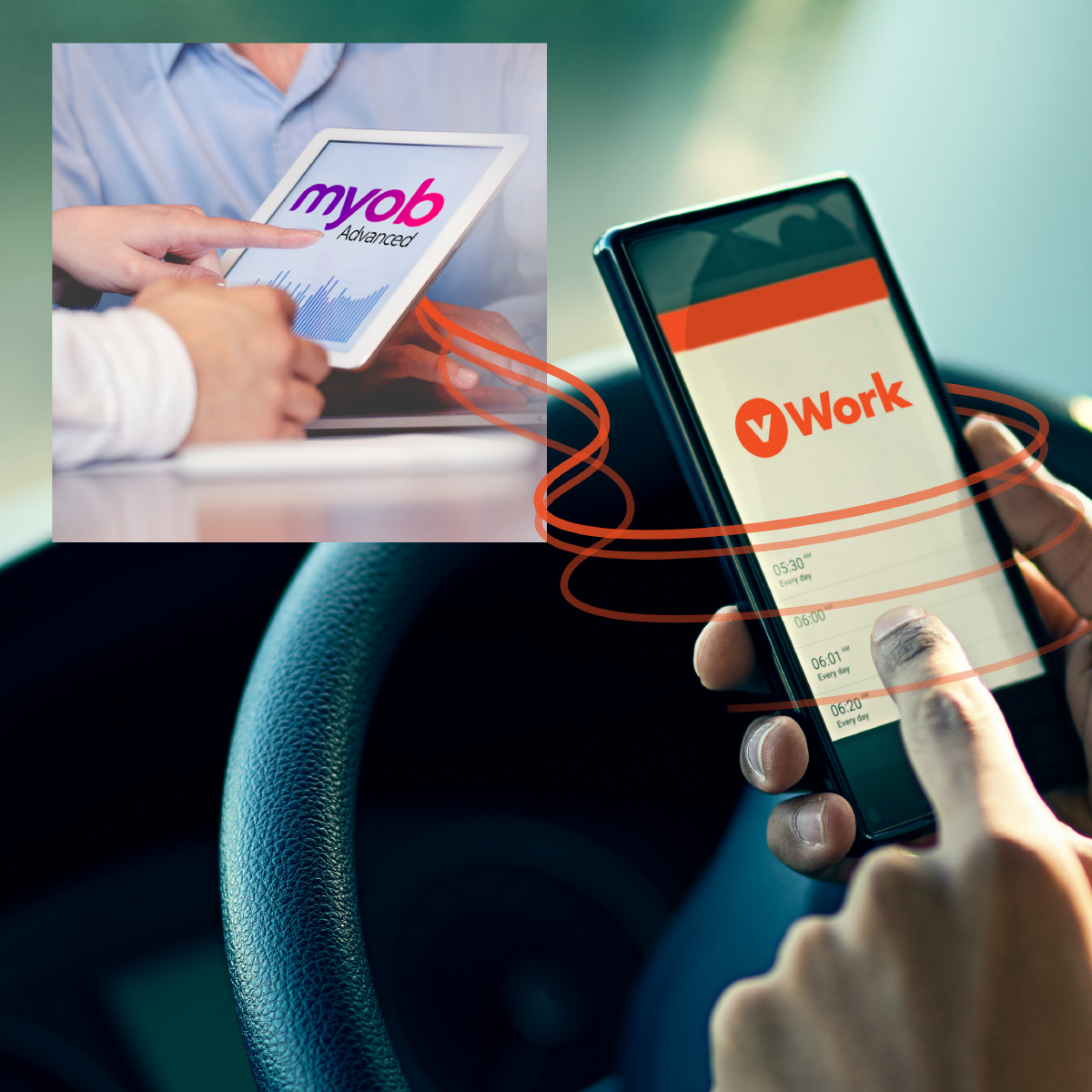Five advantages of integrating your accounting package with your job scheduling software
In today's business environment, one key to success is to be operationally efficient and agile. To achieve this, it's important to find and implement systems that are smart, and that work cohesively with your other platforms.
This is no longer the challenge it once was. With digital transformation taking place across multiple industries, integrations that were once fraught with risk are now pretty straightforward. And when all moving parts, including business data, work well together, outcomes can be achieved far quicker and effortlessly, than on their own. A unified digital strategy brings together business strategies and technologies together to guide operational success.
When your core business is delivering services away from the office, or transporting goods around the country, it’s imperative that you’re able to easily connect key data from your paperless job scheduling software, to your accounting tools, wherever you are. When the data is flowing well in both directions, it allows you to operate more efficiently and with fewer silos.
And that’s only the start of the benefits; take a look at these advantages when integrating your accounting package with your job scheduling software.
-
Instant invoicing
-
Google Distance calculates the true distance of each job allowing you to accurately bill kilometres and hours without having to rely on drivers to record the data.
- Accurate time stamps on jobs, meaning invoices are billed to include every minute, which is hugely important for those high-value equipment rentals or where demurrage charges apply.
- Triggers will automatically send an invoice once the job is marked as complete, meaning no delays in invoice despatch. And the flow-on effects of lower debtor days.
- A data-first view of comprehensive business insights to consider in terms of profitability and turnover.
Automated, real-time invoicing is a win-win situation for all, as customers get prompt and accurate invoices, and businesses receive payment in a timely manner.
-
It offers a complete picture of your business
A major advantage of choosing a cloud-based job scheduling and accounting package is that once they’re integrated, you’ve got total visibility of your business, right at your fingertips, from anywhere. Because these are cloud-based platforms, data is inputted once and immediately available across all integrated systems.
When your systems are stand-alone and each platform needs to be individually accessed to input and retrieve data, your teams will be operating in silos and with less accuracy.
Thanks to real-time data provided by your integrated platforms, you’ll have a 360-degree view of your business and be in a much better position to spot weaknesses before they become a problem and capitalize on any opportunities before your competitors.
-
Choose what works best for your business right now
When planning your digital planning strategy, it might be tempting to consider a system that appears to do it all.
One-stop-shop type software, like job scheduling that comes with a CRM and invoicing, may seem like it will do a lot for you, but our advice is to compare it carefully with the benefits of opting for a specialist system. Generalist solutions tend to be exactly that - solutions that provide functionality across
a wide range of features at a low level of depth, rather than the depth of solution that you'd get with a specialist accountancy or job scheduling software.
When you're working with specialist service providers, like our team here at vWork, you also have access to a wide range of experts that are well versed in their particular area. Plus specialists like us are also likely to have experience with APIs as well as pre-built integrations.
Being able to lean on providers that offer specialist know-how will be hugely beneficial as you move towards a more efficient and agile business, with a toolkit of software that are best for you.
-
Put an end to double handling, re-keying and missed data
When you have a paperless job management platform, particularly one that is integrated with your accounting software, it becomes your single source of the truth.
No matter what system you’re working on or who accesses it, the shared data is always accurate. There’s no need for manual checks, searching for information in several places, or trying to validate information that gets questioned by customers or suppliers - everything you need is one place, accessible, correct and up to date in real-time.
When you move from manual processes to automated ones, you’ll notice a significant efficiency improvement across all aspects of your business. With information automatically flowing to where it should be, you’re able to remove tedious and time-consuming tasks (like transcribing paper job sheets), which frees up your staff to be able to focus on other high-value or critical tasks like customer retention and new business development.
-
You save time and money
In business - time is money. So, if you can find ways to more efficiently and accurately run your business, whu would you not?
Share this
You May Also Like
These Related Stories

Five reasons why your customers will thank you for digitising your job management

Five signs that you're ready for paperless job scheduling

